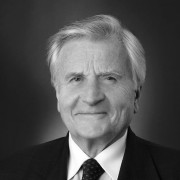Past Event
An alpine divide? Comparing economic cultures in Germany and Italy
A discussion of Italian and German macro-economic cultures and performances.
video & audio recordings
At this event we presented “The Value of Money. Controversial Economic Cultures in Europe: Italy and Germany” (published by Villa Vigoni) and had a discussion on Italian and German macro-economic cultures and performances.
When the Bretton Woods system collapsed in the early 1970s, Italy and Germany embarked on radically different monetary policies. The result was an increase in the value of the D-Mark from 170 Italian lira under Bretton Woods to 990 lira at the start of European Monetary Union. What was behind this development and did it reflect a fundamental alpine divide between Germany and Italy in the conduct of macro-economic policy? Has this divide persisted in EMU and, if so, does it threaten EMU, or is it receding?
What does the interaction between Italian and German economic cultures tell us about dynamics within the ECB? And what do these dynamics tell us about actions during, say, the financial crisis?
Schedule
13:00-13:30
Kick-off remarks
Chair: André Sapir, Senior Fellow
Patricia Mosser, Director, MPA Program in Economic Policy Management, Columbia University
Hiroshi Nakaso, Chairman, Daiwa Institute of Research
Marianne Nessén, Senior Advisor to the Executive Board, Sveriges Riksbank
Jean-Claude Trichet, Honorary Chairman of Bruegel
13:30-14:15
Conversation and Q&A
Chair: André Sapir, Senior Fellow
Thomas Mayer, Founding Director, Flossbach von Storch Research Institute
Patricia Mosser, Director, MPA Program in Economic Policy Management, Columbia University
Hiroshi Nakaso, Chairman, Daiwa Institute of Research
Marianne Nessén, Senior Advisor to the Executive Board, Sveriges Riksbank
Francesco Papadia, Senior Fellow
Jean-Claude Trichet, Honorary Chairman of Bruegel
Speakers

Thomas Mayer
Founding Director, Flossbach von Storch Research Institute

Patricia Mosser
Director, MPA Program in Economic Policy Management, Columbia University

Marianne Nessén
Senior Advisor to the Executive Board, Sveriges Riksbank

Hiroshi Nakaso
Chairman, Daiwa Institute of Research

Francesco Papadia
Senior Fellow

André Sapir
Senior Fellow

Jean-Claude Trichet
Honorary Chairman of Bruegel
Location & Contact
Katja Knezevic
[email protected]










